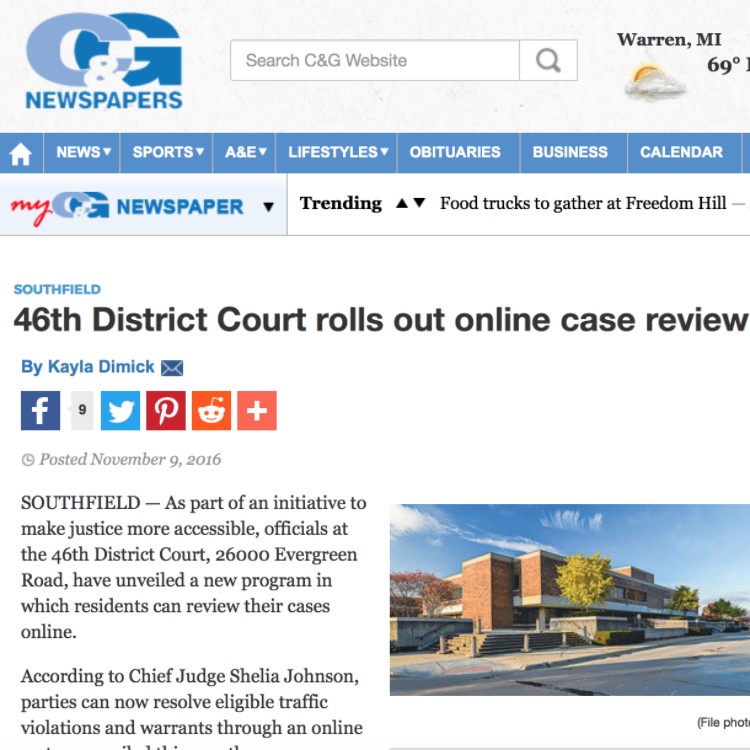Improve Access to Justice via ODR
Matterhorn online dispute resolution improves access, efficiency, fairness, and customer satisfaction.
Matterhorn online justice platform is trusted by over 150 courts, mediation centers, lawyers, bar associations, and municipalities in over 20 states and used to resolve many case types.
24/7 Service Without 24/7 Staff
With Matterhorn, you provide access to travelers, students, workers, the military, or anyone who cannot attend in-person.
Events
It seems we can’t find what you’re looking for. Perhaps searching can help.
Company News
46th District Court rolls out online traffic case review
The Michigan 46th District Court in Southfield rolls out online case review.
According to Chief Judge Sheila Johnson,
“We have a lot of traffic here with the freeways, and so this is a wonderful opportunity for residents to solve traffic matters from the comfort of their home,” Johnson said. “This encourages people to not be fearful of the system, so they know they can resolve it from home and they know they won’t have an outstanding warrant if they get it taken care of.”
Read the full story on the C&G news website.

PUBLIC TESTIMONIALS
What They Say
Default Title
Default Title
Default Title
Default Title
Default Title
Default Title
About Matterhorn
Courts, mediation centers, lawyers, municipalities, bar associations and and government agencies use Matterhorn online justice platform.
Matterhorn online dispute resolution (ODR) offers several key benefits including: increased access to justice, fairness, greater efficiency for staff, faster payments, and high customer satisfaction.
Matterhorn serves small to large districts, urban to rural communities, and decentralized to unified systems. The platform can match or streamline on your existing process and connects in a lightweight way with your other systems.
Matterhorn enables you to address a wide variety of case types including civil cases (such as small claims cases), pre- and post-decree family and domestic cases, traffic tickets, civil infractions, and lesser misdemeanors (“Class C” Misdemeanors in some states), resolve warrants and pleas, and assess ability to pay.






